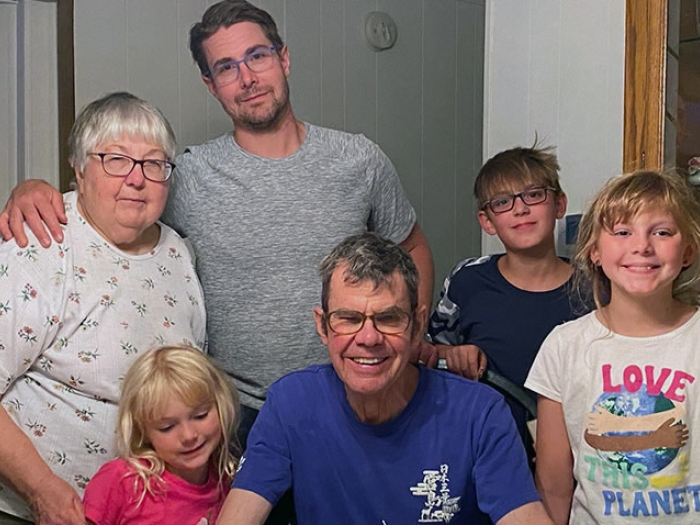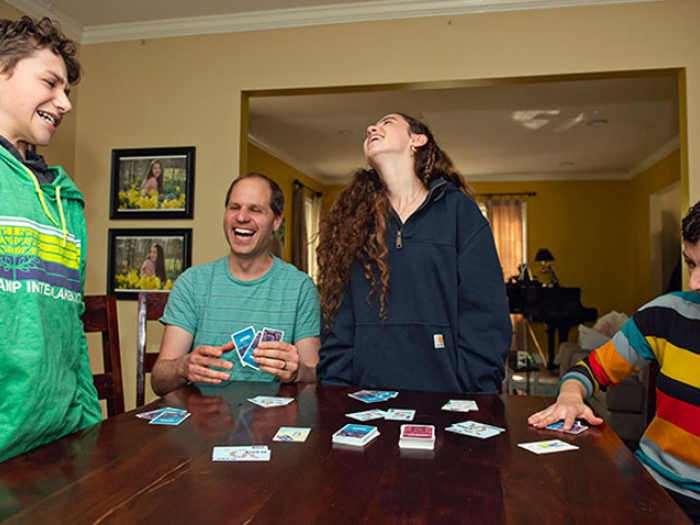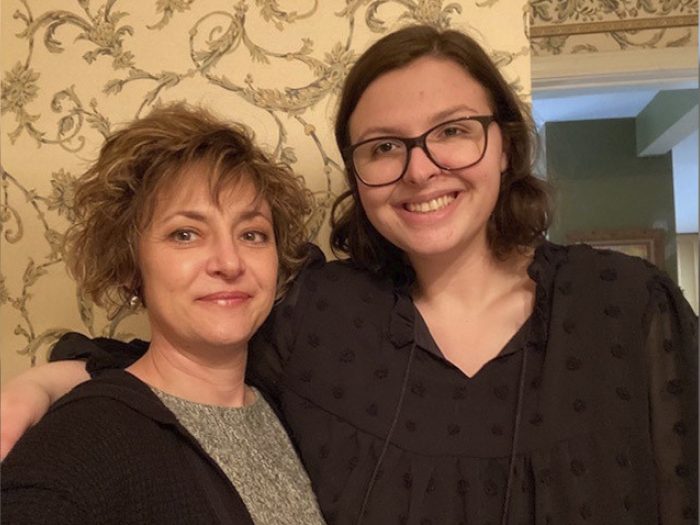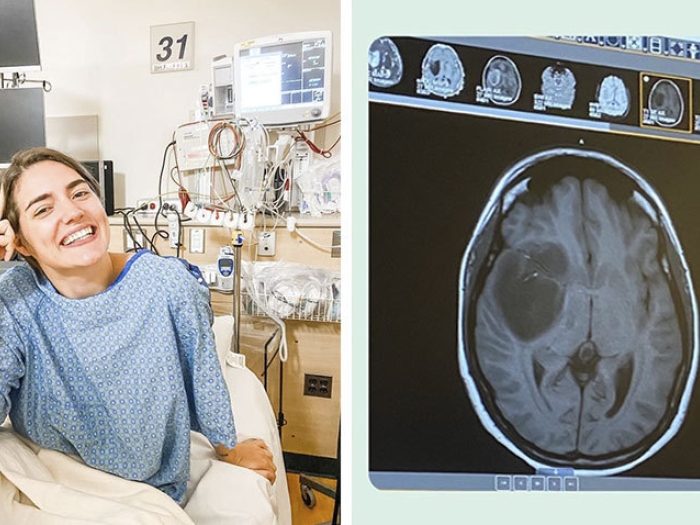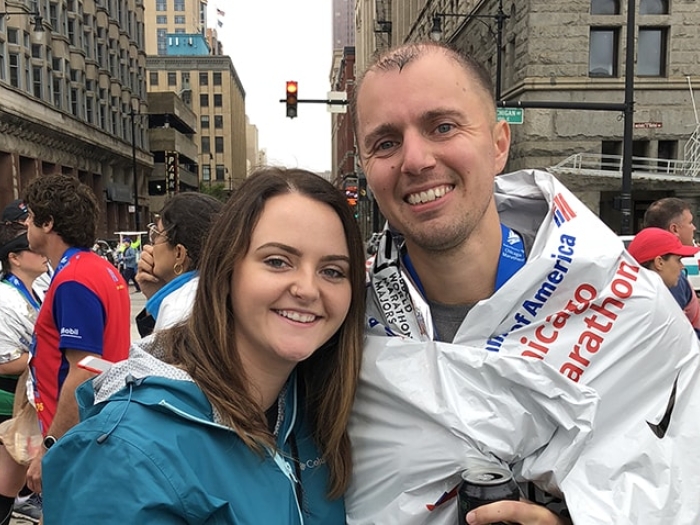Constant headaches brought a mother to Michigan Medicine, where a brain tumor was discovered and removed. Now, she's getting back on her feet.
7:00 AM
Author |
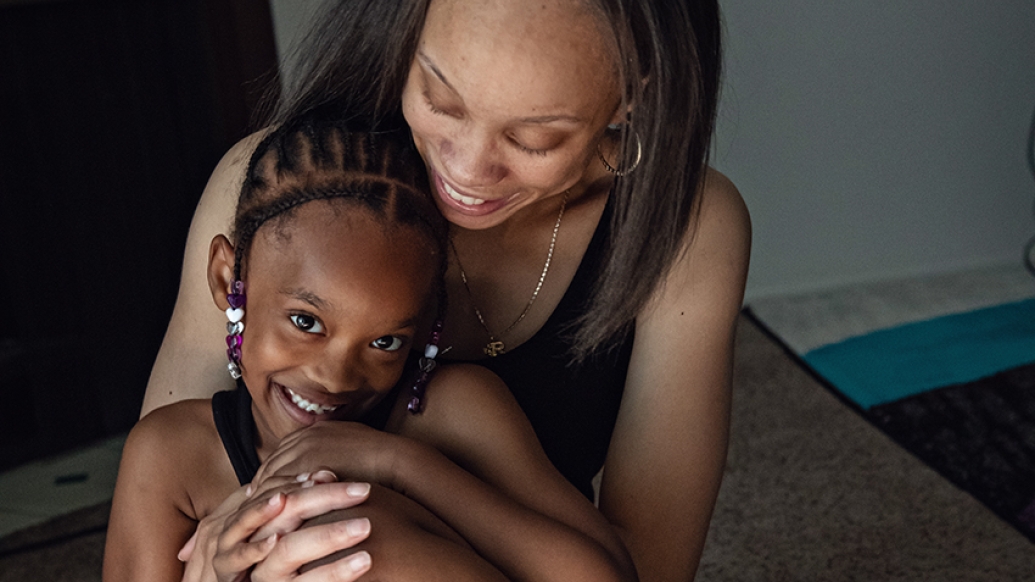
It's shaping up to be a busy fall for Rebekah Cobbin.
She's sending her daughter, Amilyah, off to third grade, starting a new semester of business courses, working as a vault teller for an armored car company and, as always, making plans for quality time with her family and at church.
LISTEN UP: Add the new Michigan Medicine News Break to your Alexa-enabled device, or subscribe to our daily audio updates on iTunes, Google Play and Stitcher.
Imagine doing it all with a constant headache.
That was once a reality for the 30-year-old Cobbin, who spent much of her 20s in pain and confusion.
"I did everyday life with a migraine," she says.
That pain was amplified by an uncertainty of what could be causing the draining headaches that were harder and harder to treat with medication — as well as the knowledge that Cobbin would eventually need surgery.
The cause of the migraines: A benign brain tumor.
Steadfast in her faith, the Westland, Michigan, resident refused to let her health struggles derail her college journey and her devotion to her daughter.
And in recent years, it's been part of a detailed plan with her Michigan Medicine care team that monitored the brain tumor over time before deciding what to do next.
Watchful waiting
When she first got to Michigan Medicine in 2016 after being told she couldn't be operated on, Cobbin learned that her noncancerous tumor was stable.
"It always looked benign to us, like a meningioma," says her surgeon Daniel Orringer, M.D. "Generally, we like to wait and watch that type of tumor instead of putting a patient through surgery right away because some are really slow-growing."
MORE FROM MICHIGAN: Subscribe to our weekly newsletter
Meningiomas are the most common types of tumors around the brain.
And Cobbin's was located in a difficult part of the brain to access: Fibers essential to her vision and motor function come together right over where the tumor was, Orringer says.
Which is why the patient would return to Ann Arbor every few months so Orringer could check whether the tumor had grown.
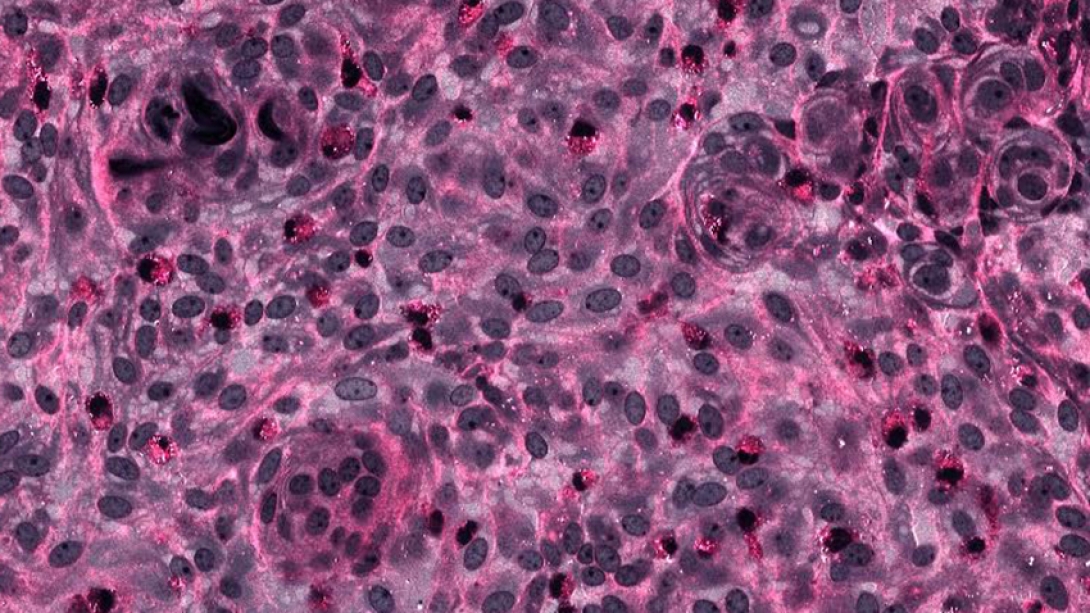
By the spring of 2018, the tumor was the size of a plum, and imposing enough to warrant a conversation about surgery.
"It seemed to be growing slowly but surely and earlier this year we decided, given the slow but steady growth, to take it out," Orringer says.
"The tumor was sitting in one of the hollow cavities of Rebekah's brain, expanding the cavity and pushing the brain around to the side. As we removed the tumor, we started to see the brain coming back into its normal shape and position."
Moving forward with surgery
Cobbin had to drop her semester of business courses and start getting ready for surgery.
Orringer was able to remove the entire tumor, using advanced imaging methods to determine the safest approach. A minimally invasive approach called a tubular retractor allowed him to access and remove Cobbin's tumor while minimizing damage to the other parts of the brain.
SEE ALSO: Migraine Nightmare Sparks Successful Photography Career
All went as hoped throughout the six-hour surgery.
"It was a very deep-seated tumor, but she's having a good recovery and her prognosis is good," he says. "The risk of recurrence is very low, and Rebekah's brain should continue to recover. She's gone through a major operation and is now returning to a good quality of life."
The morning after her surgery in April, Cobbin says she surprised her care team when they found her walking around the halls of the hospital.
"I told the doctor: 'I got stuff to do! I've got no choice but to recuperate!'" she recalls, with a laugh.
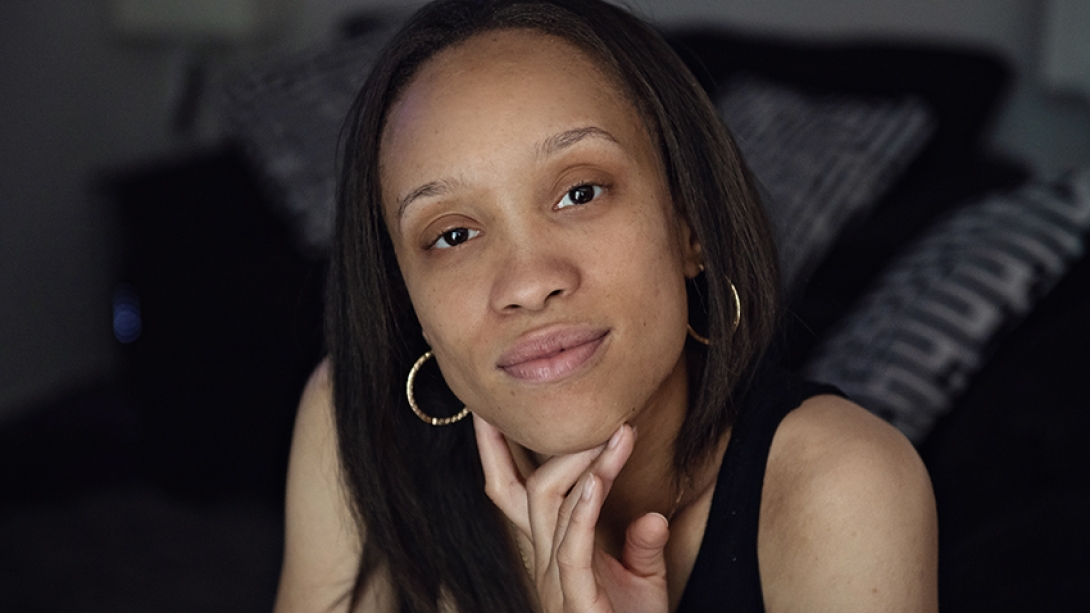
Life without a migraine
Just months after her procedure and rehabilitation, Cobbin is getting back to living and loving her crazy schedule, with a few modifications.
"Dr. Orringer told me that I might forget some things, and I also had some floaters in my right peripheral, but it's all getting better with time," she says. "It's been a challenge, but I have great people on my team, as far as the U-M staff, and my whole family was praying for me."
Cobbin still has slight headaches, but not every day.
What hasn't changed is the positive attitude that has gotten her through every trial along the way.
Says Cobbin: "Gosh, it feels really good, just to live life without a migraine!"
Photos by Leisa Thompson

Explore a variety of healthcare news & stories by visiting the Health Lab home page for more articles.

Department of Communication at Michigan Medicine
Want top health & research news weekly? Sign up for Health Lab’s newsletters today!

